Gray (Book 3) Read online
Page 12
She started anew, a neater drawing. “The whole thing seemed like metal, or at least it was a gunmetal gray.” She tried to remember the trigger, the magazine. “No, sorry. I didn’t get a good look at anything on the bottom side.” She looked at Benjamin, who was watching her draw. “Do you recognize it?”
He nodded and took the paper and passed it to Parnell. Parnell glanced at it and passed it on to Levi. “Looks like an M16, standard military issue. Eight hundred rounds a minute. You can get a head shot at fifteen hundred yards with one, if you know what you’re doing.”
“And I think we can assume they know what they’re doing.” Levi looked over to Coral. “This was how long ago?”
“We’re thinking maybe six weeks? Could be seven.”
“You can show us where?”
Benjamin said, “If you have an Idaho map with rail lines on it, I could get you real close.”
Levi said, “I don’t have one here.”
“At the office,” Parnell said.
“Is it worth worrying about tonight?” Levi asked him.
A slow shake of the head from Parnell. “If they aren’t at our doorstep now, it’s unlikely they’ll be here before tomorrow.”
“Still, we should try to figure this out quickly. Where they are. Why they haven’t come this way, toward the biggest city around. That’s where I’d be headed.” He frowned at Coral. “Is there anything else you’ve been keeping from us like this?”
“I wasn’t keeping anything from you. It hadn’t come up. There was also a small group, armed, dangerous, like six people, back in—” she looked at Benjamin, forgetting the name of the place.
“American Falls,” he said. He shook his head dismissively. “You should worry more about the cult. They’re closer, and they’re armed.”
“But you said they were busy preparing for their alien masters or somesuch,” Levi said.
“That’s right.”
“They’re nothing,” said Levi. “But an army. The Army. That’s another kettle of fish.” He looked again at Coral’s drawings. “You two, be in the library, at dawn. We may need to ask you more questions.”
“What about—?” began Coral.
“This takes precedence over the clinic,” Levi said, anticipating her question.
Poor Edith. At this rate, she was never going to be able to take a day off.
“How’s the light right now?” Levi asked Parnell.
Parnell went to the window and moved back a heavy drape. “Still light.”
“Get on home, then. And I’m glad you told us this. Better late than never, I suppose,” Levi said.
Coral said nothing. She was done defending herself. These people had no idea what it had been like out there, how one dangerous group had supplanted the next in her mind. Each day’s troubles were troubles enough, and dwelling on the past was worse than useless. Levi looked like he had no worse problems than deciding which comfortable chair to pick to rest his butt in every night.
Chapter 17
“Why do I feel guilty?” She asked Benjamin, as they hurried under darkening skies back to the apartment.
“For not telling them sooner?”
“Yeah. I shouldn’t, and yet I do.”
“You’re getting acclimated. You’re starting to see them as your tribe, and feel a responsibility toward them.”
“No. You’re my tribe,” she said.
They walked in silence. Coral thought back to the Army guys—or fake Army guys, whichever they were. “I don’t think I can remember anything other than what I told them.”
“No?”
“But I have to go there tomorrow anyway.”
“Yep.”
“I don’t like getting…” she was going to say “yanked around,” but that was an exaggeration. She thought it through as they turned up the walk for Doug and Abigail’s place. “The thing is, I’m used to running my own life. You and me, we have this nice democracy of two. I’ve fallen out of the habit of taking orders.”
He held the door open for her.
“I don’t want to take orders.”
“If we stayed, we’d have to. Many times. And they might be the wrong orders.”
The hallway was so dim she couldn’t see him. She held on to his jacket to stop him. “I liked being on our own.”
“Yeah.”
“Didn’t you?”
“Yes. But we’re here now.”
A door behind her opened up, and a neighbor said, “Oh, it’s you two. I was waiting for a friend.”
“Sorry,” said Coral. “Didn’t mean to disturb you.” She also didn’t mean to be overheard. “Good night,” she said, and nudged Benjamin on down the hallway.
In the apartment, Doug was sitting by the window with a book, taking advantage of the last of the daylight. He looked up when they entered. “How’d it go?”
“Fine,” said Benjamin.
“You in trouble with the boss man?”
“Not much,” said Coral. “We have to go back tomorrow.”
“So tell me what you told him.”
Coral saw no reason not to, so she gave a brief account of the guys in the Humvee again, and of the identification of the rifles they carried. “I didn’t know I remembered that much, not until I started focusing on drawing it.”
“Memory is a funny thing,” Doug said. “Sometimes, it’s all there, stored, but you don’t realize it’s there. Other times, it doesn’t get stored, or it gets mixed up with something else.”
“I don’t think I mixed this up,” said Coral. “Though that’s what a person who had remembered wrong would say, too.”
“Eyewitness accounts, notoriously unreliable,” said Doug, cheerfully.
“Then I hope I didn’t make the Army guys up entirely. Because then Benjamin and I left years’ worth of food for no good reason.”
“There’s food here.”
“Is there?” said Coral. “Tonight’s dinner seemed pretty thin. Feeding three hundred people twice a day, that’s going to take a lot of stores.”
“There’s still food out there,” said Doug. “Plenty of food. We just have to find it.”
Doug only visited “out there” a couple times each month. She’d been living out there and knew the impossibility of finding meaningful amounts of food in home sites. “Problem is,” she said, “by this point, to dig out one house’s canned food—even if you were sure it was there in the first place—would burn almost as many calories as you’d get back in food. Maybe not four months ago, but with the snow this deep, that’s the equation.”
“We probably haven’t found everything in town, either.”
Benjamin said, “Where’d the MREs come from?”
“Across the river, on the north side, there’s a military storage facility.”
“Huh,” said Benjamin. “Lots of supplies there?”
“Not a lot. Some survived. Some were ruined.”
Benjamin might be wondering about weapons or ammunition, though she was focused on food. “I wonder if you’re ever going to get that rifle back,” she said to him.
“Levi isn’t quick to trust,” Doug said.
“No,” said Benjamin.
“And he’s something of a control freak,” Doug said. “And Parnell isn’t much better.”
Abigail came out of the bathroom, slipping into her jacket. “Doug,” she said, a warning in her voice.
“We’re among friends, Ab,” he said.
Even though she could barely see her in the fading light, Coral thought Abigail looked worried—her tense posture alone communicated that. Coral said, “Look. Levi and I aren’t each other’s biggest fans. I won’t repeat anything you say.” She put a smile into her voice. “Who do I have to talk to other than Benjamin anyway?”
“You’re a nice person. You’ll be making friends,” said Abigail.
Coral didn’t think she would be, even if they found food and she stayed. She had no interest in doing so, and her role as doctor put a formal distance betwe
en her and other people.
As she and Benjamin climbed into their bed, she felt drained. Not physically drained, but drained by people and the stress of living here. It wasn’t only that she mistrusted the city dwellers. It was constant human contact. It was schooling her expression every minute of every day. It was feeling caged. It was the loss of self-determination and freedom.
“How did I ever function in the real world before?” she asked aloud.
Benjamin said, “What?”
“Oh, nothing. I was thinking about how three hundred people are overwhelming me. How did I live on a campus of 45,000 people?”
“Don’t know,” he said sleepily.
“Sorry. I’ll shut up now.”
Benjamin was asleep in seconds, but Coral stayed up for a couple hours, trying to figure out this new person she had become. It had been happening all along, but not until she was here had the contrast of new Coral in the old world made it clear to her. Even if this place had no ugly underbelly, even if these people were basically good—or as good as people can be—and even if it was sustainable for months more, she wouldn’t fit in. Not any longer.
Every cell in her body wanted to be gone. She wanted her freedom. She wanted silence and solitude. She wanted to be sitting by a lake and catching her and Benjamin’s food for the day.
It hadn’t seemed like much fun while it was happening. It was a cold battle for survival. But now it seemed idyllic to think back on. A week ago, she had been weak, recovering from nearly starving to death, cold, trying to treat Benjamin’s infection with no supplies, and worried that she might lose him.
Even then, she had been happier than she was right now.
Chapter 18
She and Benjamin waited around the next morning in the library for an hour before Levi and Parnell called them in to grill them about the Army guys. But Coral’s memory had been mined for every detail she knew. Benjamin was of more help, pointing out on their maps where he thought the rail car of food had been.
“Too far to make it worth our checking it out,” said Parnell.
He was right about that. If the train were still there, untouched, there was no way to bring the food back to Boise. Send a team of people out there, and if they loaded themselves up—or built a sled—they’d have eaten the food by the time they returned to town.
And that was if they didn’t run into any enemies.
“I’m more worried about where these Army guys are holed up,” said Levi. “And why we’ve never seen a sign of them.” He and Parnell bent over the map and talked about where they might be based.
“If she’s right about it being Army, it couldn’t be at Mountain Home,” said Parnell.
“Which is Air Force anyway.”
“But maybe worth checking out.”
“Should we?” said Levi. “If they’re there, would we be stirring up a hornet’s nest?”
“If they’re that close, they’d have already headed this way. In seven months, we’d have surely seen them,” said Parnell.
“Especially if they had working vehicles,” said Levi. “So they were coming along the rail line?”
He was asking her. “Yes. Right along it, apparently following it and doing what we had been doing, looking for food or supplies in stopped trains.”
The two men bent to the map again, tracing the rail line.
Levi asked, “How many at the Air Force Base? Ten thousand?”
Parnell answered him. “No, not that many. And look. This rail line goes nowhere near it.”
Benjamin, peering over their shoulders, said, “The base is no bigger than a small town, then?”
“But giving them a better chance of survival.” Parnell looked over to her and Benjamin. “We done with these two?”
“Yeah,” said Levi, not looking up.
“You can go to breakfast then,” said Parnell.
Benjamin stood staring at the map for a moment longer and then seemed to come to. “Sure,” he said, and turned for the door.
Coral followed him out. “You see something? On the map?”
“Trying to memorize the land west of here.”
“We thinking of heading west?” The thought lifted Coral’s spirits.
“It’s the way we have been heading,” said Benjamin. They exited the library building and turned for the dining facilities. “If we could make it to the coast one day, the weather might be slightly warmer with the ocean’s influence.”
“And the coast—that’s how many miles?”
“Five hundred, give or take.”
“So at an average of five miles a day—and that’s assuming there’s a burger stand at the end of every day—that’s a hundred days.”
“Late spring,” said Benjamin.
“As if we’ll ever see a spring again.”
“We might,” said Benjamin.
“What has you so optimistic this morning?”
“I don’t know,” he said. “Maybe I slept well.”
The next two days settled into a routine: clinic, meals, back to the apartment to chat away the evening. At the same time, Benjamin planned their departure, filching what useful small items would not be missed.
They were fed well enough twice a day, and Coral grew stronger. She got to know Abigail and Doug better. At work, she had a chance to flip through some of the medical texts in the clinic. She got one of the needles fitted to the bizarre sheep device and was able to draw water into it and send a strong stream out the end of the needle. Now she had a way to inject drugs into people. Coral was able to tell Edith to take her first day off.
At the end of the day managing the clinic by herself, she was coming back from her afternoon walk and saw a crowd gathered in front of the dining hall. She wondered if it might have to do with her revelation about the Army group, that possible threat.
But as she drew nearer, she saw that there was a man at the center of a semicircle of watchers. He stood before Parnell. His hands were tied behind his back. She didn’t know his name, but she had seen him here in town. His head was bowed.
Parnell’s voice grew audible as she approached. “…And that is not how we work. Everyone contributes. Everyone shares.”
A few heads in the gathered crowd nodded, but mostly people stood still and watched Parnell and the bound man.
“We’re not monsters. Everybody gets a chance.” Parnell had been addressing the crowd, but now he leaned in to the man and said, “One chance.”
Coral stood apart, watching. She wondered what the man had done. Stolen? Raped? Gotten into a fight?
“You know the punishment for the second infraction,” Parnell said.
The man nodded.
Parnell cut the man’s bonds. The rest of the crowd began to file into the dining hall, not a single one making eye contact with the man.
They were shunning him. And he was feeling it. He stood motionless and let people file passed him.
It could have been worse. No one hit him, or spit on him, or jeered at him. They ignored him, as if unwilling to be tainted by his lowered status.
Coral lost sight of Parnell and the man. She saw Kathy, walking in the door after Benjamin. They must have been standing together and watching. By the time she filed in, among the last, everyone was already seated in her dining room. Conversations were subdued.
She sat next to Benjamin and leaned in. “What did he do?”
“Petty theft,” said Benjamin, quietly.
Despite their not making much noise, the woman across from her gave her a dirty look.
Apparently, they were not supposed to discuss it. Just a superstition? Or an official rule?
Later, in bed, she and Benjamin talked about the incident. Kathy had told him the man—Roger was his name—had been caught eating a granola bar during his scavenging.
“Like a case of them?” she asked.
“Apparently not. Just one, a random find.”
“I don’t know that I might not have done the same. It was hardly enough to share th
ree hundred ways.”
“I guess they can’t let a precedent be set. First, one bite. Then two. Then you have someone smuggling back a case of canned corn to share with their apartment mates.”
“I guess.” She didn’t know how she’d run the town differently. It certainly wasn’t a big enough offense to conduct a formal trial. And she assumed he’d been caught red-handed by another scavenger. But the scene outside the dining hall had disturbed her anyway, reminding her too much of the head-shaving punishment she had received from the cult.
The next day Edith returned to work, and neither of them spoke about the incident the night before.
A woman came to the clinic at the end of the day with two toes in the advanced stages of frostbite, saying she wasn’t feeling well at all.
“Why didn’t you come in sooner?” Edith asked the patient while Coral read her patient file: Julie, thirty-one years old, single, no children.
“I had it under control. It happened the first time a month ago. It wasn’t bad. I got warmed up. I took a day off. But when I went back to scavenging, I guess I still couldn’t feel my feet that well, and it happened again. And now it looks like this.”
“You should have come in immediately,” said Edith.
Coral agreed, but there was no reason to try and shame the patient now. What was done was done.
As she examined Julie’s toes, she grew worried. They were not just white—they were white and red and blue and black at the tips. “I think you should stay here tonight. We’ll keep the stove going.” She would stay, too, to keep an eye on those toes.
After making sure they had plenty of fuel, Edith took a trip to the kitchen for meals for Julie and Coral.
Coral set water to warm, and when it was body temp, placed the woman’s foot in a bucket of the warm water. She told her not to touch it while her toes warmed. She stood by helplessly as the toes turned blacker. Blisters formed and filled.
Over the next hour, she watched as those blisters swelled.
When Edith was done eating her supper, Coral had her stay with the patient and took her food and a first-aid manual into the next room and read and re-read every word it had to say on the matter. The section on frostbite ended “seek emergency medical treatment,” which is what the woman had done. Unfortunately for the woman, Coral was the emergency medical treatment, sitting there reading a damned first-aid manual that told her nothing. She flipped through the indexes of the other medical books, finding little of use, and went back to the treatment room.

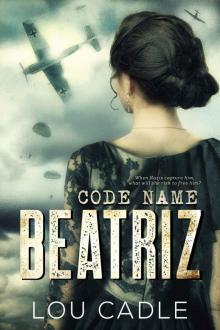 Code Name- Beatriz
Code Name- Beatriz Oil Apocalypse Collection
Oil Apocalypse Collection A Dawn of Mammals Collection
A Dawn of Mammals Collection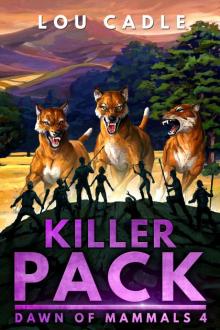 Killer Pack (Dawn of Mammals Book 4)
Killer Pack (Dawn of Mammals Book 4)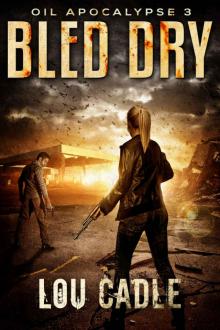 Bled Dry
Bled Dry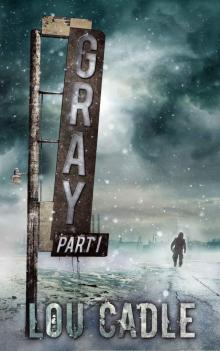 Gray (Book 1)
Gray (Book 1) Dawn of Mammals (Book 4): Killer Pack
Dawn of Mammals (Book 4): Killer Pack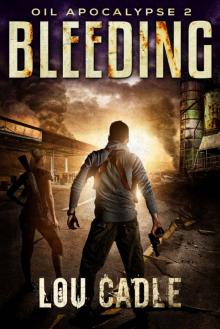 Bleeding (Oil Apocalypse Book 2)
Bleeding (Oil Apocalypse Book 2)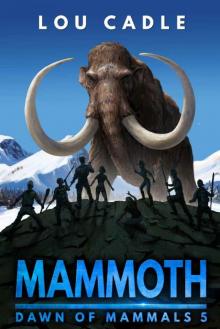 Dawn of Mammals (Book 5): Mammoth
Dawn of Mammals (Book 5): Mammoth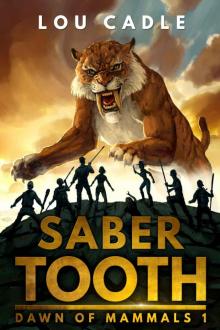 Saber Tooth (Dawn of Mammals Book 1)
Saber Tooth (Dawn of Mammals Book 1)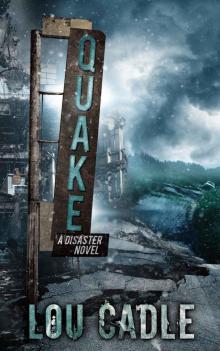 Natural Disaster (Book 2): Quake
Natural Disaster (Book 2): Quake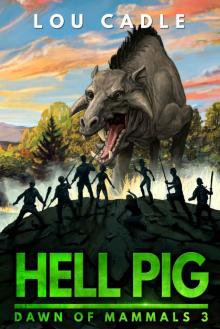 Hell Pig (Dawn of Mammals Book 3)
Hell Pig (Dawn of Mammals Book 3)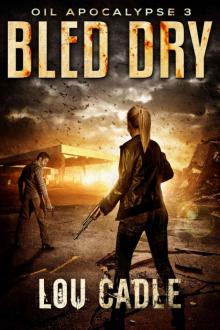 Bled Dry (Oil Apocalypse Book 3)
Bled Dry (Oil Apocalypse Book 3)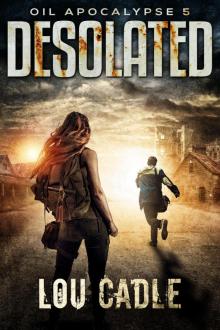 Desolated
Desolated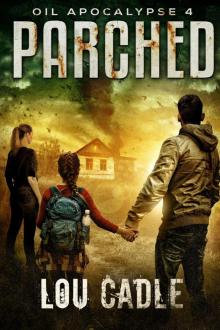 Parched
Parched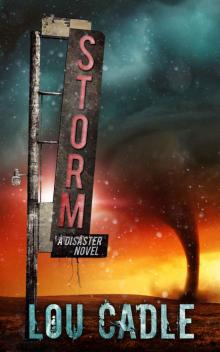 Natural Disaster (Book 3): Storm
Natural Disaster (Book 3): Storm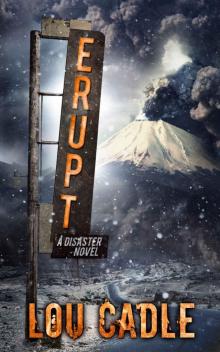 Natural Disaster (Book 1): Erupt
Natural Disaster (Book 1): Erupt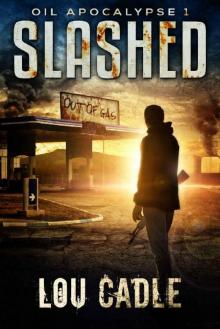 Slashed (Oil Apocalypse Book 1)
Slashed (Oil Apocalypse Book 1)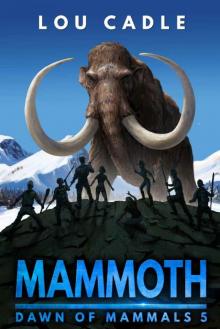 Mammoth (Dawn of Mammals Book 5)
Mammoth (Dawn of Mammals Book 5)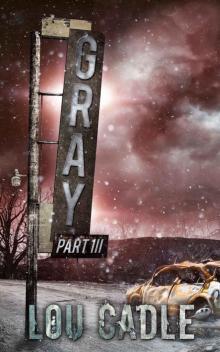 Gray (Book 3)
Gray (Book 3)